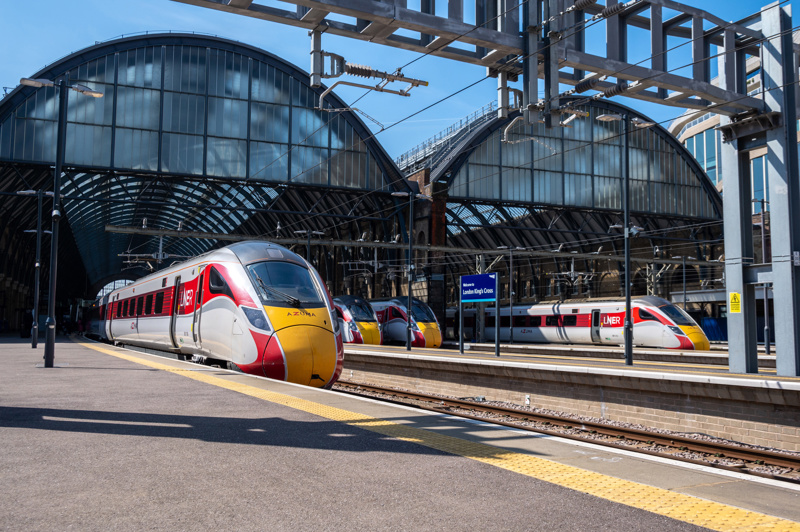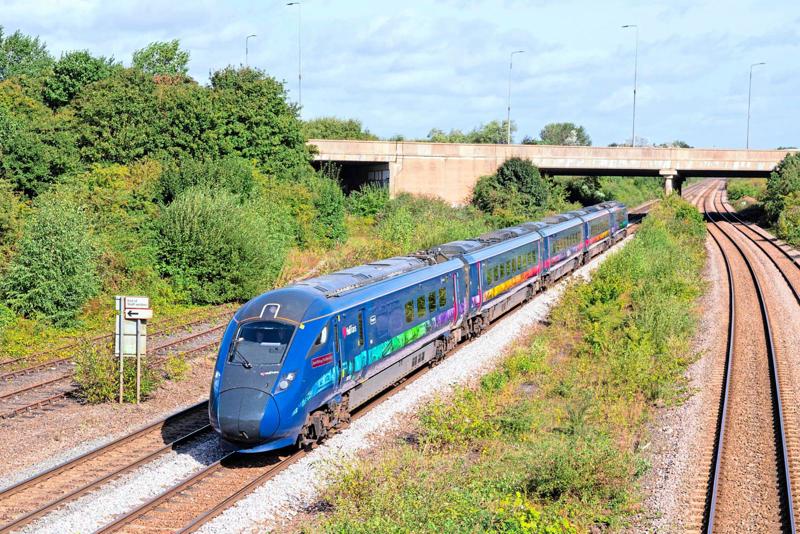
Network Rail says it cannot support Hull Trains’ bid to serve Sheffield, nor LNER’s plans to increase services between King’s Cross and Leeds.

Network Rail says it cannot support Hull Trains’ bid to serve Sheffield, nor LNER’s plans to increase services between King’s Cross and Leeds.
Open access operator Hull Trains wants to introduce two return services each day between London and Sheffield via Retford and Worksop, using Class 221 or ‘222’ diesel multiple units, between May and December 2026.
Meanwhile, LNER wants to increase its offering between Leeds and London from 12 trains every two hours to 13, once its new Class 897 tri-mode fleet is in service in a few years.
Network Rail, in general representations to the Office of Rail and Road over track access applications involving the East Coast Main Line, warned in March that the new timetable due to be implemented from December 2025 will “lead to a notable deterioration in punctuality for customers”.
It also warned that adding more long-distance high-speed services would “apply further pressure to a deteriorating punctuality outlook, and further reduce the resilience of the network”.
Submitting final responses to both applications this month, NR said neither can run “in this timetable, or in future timetables, alongside the other industry-endorsed aspirations without additional infrastructure and associated development activity, which is currently unfunded and uncommitted”.
Neither LNER’s nor Hull Trains’ plans are included in the December 2025 timetable.
Both of NR’s responses referred to the Welwyn viaduct pinch-point. NR said Hull Trains’ plan could top the 18 trains per hour limit which the ECML Industry Task Force does not wish to exceed, while for the LNER application it said the additional services would reduce the number of firebreaks in the timetable”.
NR also pointed out that it had formally declared congested infrastructure between Huntingdon North Junction and Peterborough’s New England North Junction (which affects both applications), and between Doncaster Marshgate Junction and Leeds Copley Hill West Junction (which affects LNER only).
In its LNER response, NR added that being unable to accommodate the additional services “potentially signals to others that until such time as LNER were to use it that there is spare capacity available - whereas for the same reason we will also be unable to support any other aspirations for capacity that others may believe temporarily exists”.
NR also said Hull Trains’ plan would increase the use of Thrumpton curve, which connects the ECML to the Sheffield-Lincoln line, from three times a day in each direction to seven.
“It has come to light that a renewal of areas on Thrumpton curve with poor and/or jointed track sections is planned in Control Period 9 (for circa £6 million), with no scope presently to accelerate,” wrote NR Customer Manager Mark Garner.
It said that the curve and points do “not enable the introduction of services of the type of rolling stock proposed without a renewal”.
Garner also said performance at Sheffield remains a concern to NR, and that adding new services would “only compound the concern further”.
But he noted that Hull Trains had said it was willing to co-operate with any scheme to improve capacity in either Sheffield or on the ECML.

Referring to the proposed use of Class 221 or ‘222’ DMUs, NR said ORR should “consider whether there is enough rolling stock availability”, given there have been “numerous applications” that intend to use the same sets.
It is also awaiting a response on fitting European Train Control System technology (ETCS) to the units, ahead of the expected East Coast Digital Programme being introduced from December 2027.
Hull Trains told RAIL it was assessing NR’s comments, adding: “There’s a real local desire for this proposed new route. We know that it would benefit communities along the route, especially in Worksop, Sheffield and further afield, bringing cheaper fares and faster journeys. Hull Trains remains committed to launching this new service.”
Two other applications that NR does not support are from Freightliner. One is for rights for new intermodal services between seaports and inland terminals, while the other relates to “a new market” it plans to enter, although objections also relate to capacity concerns in other parts of the country.
However, NR does support some of Govia Thameslink Railway’s plans to increase the number of services between King’s Cross and places such as Cambridge, Kings Lynn and Letchworth Garden City.
It also supports LNER’s plan to introduce the CAF-built Class 897s.
LNER 801108 and 801212 line up at London King’s Cross on May 8 2024. LNER’s plans to run more King’s Cross-Leeds trains have been opposed by Network Rail. TOM MCATEE.
Login to continue reading
Or register with RAIL to keep up-to-date with the latest news, insight and opinion.


















KHomerMMTP - 28/04/2025 07:42
Does LNER really run "12 trains every two hours" between Leeds and London? Surely a drafting error...